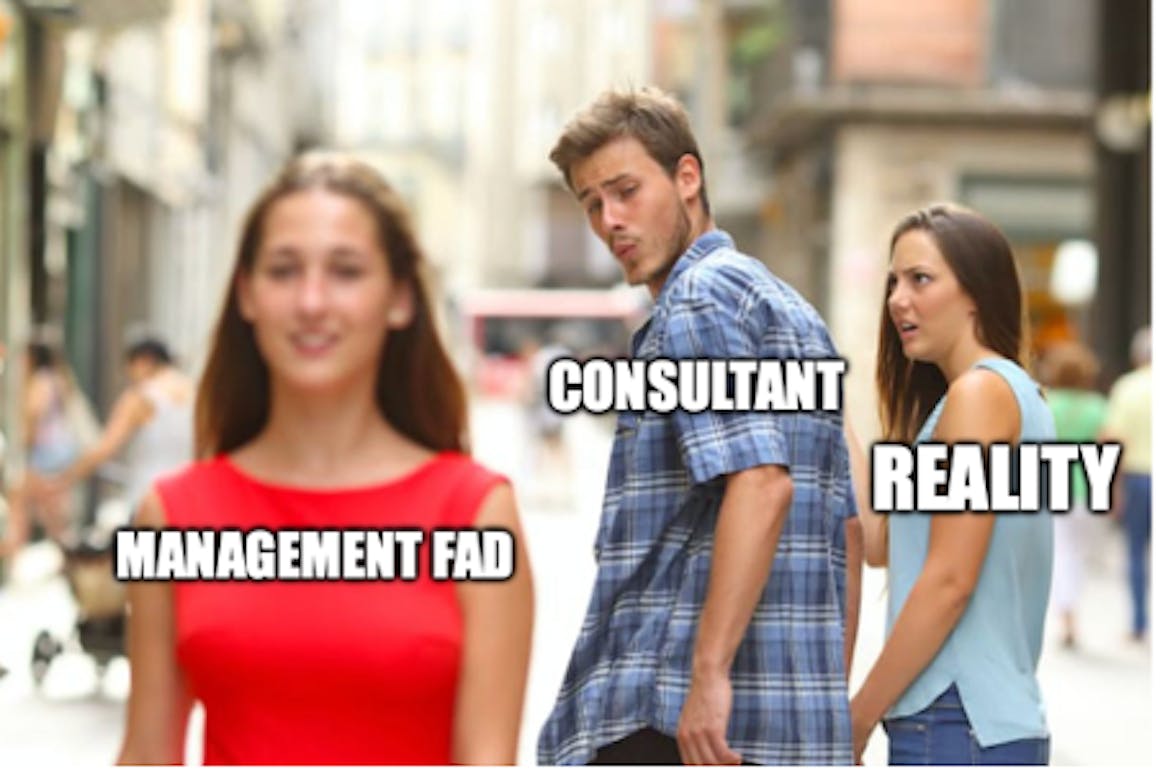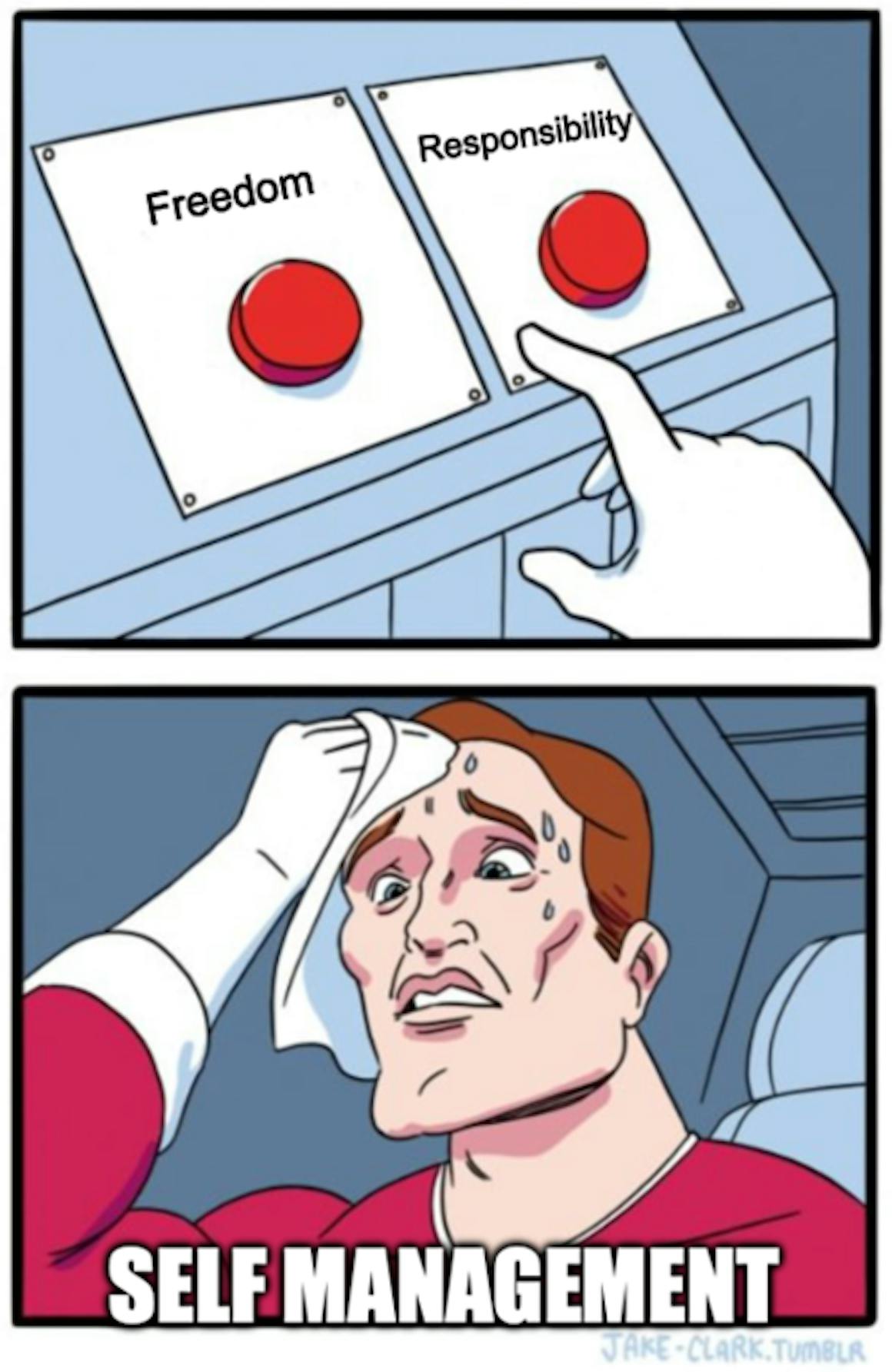Self-Management Is Not a Religion (But It's Starting To Look Like One)

In preparing for the summer '25 cohort of our Corporate Rebels Masterclass, I had conversations with two founders of wildly successful self-managing organizations.
Both run companies without traditional hierarchies. Because both believe in autonomy, trust, and ditching command-and-control.
But when I asked them how decisions are made, I got two completely different answers.
One said:
"We like to reach consensus. We only move forward when everyone agrees. It's part of our culture to find the best solutions together, not just pushing something through."
The other said:
"One of the biggest mistakes in implementing self-management is associating it with consensus. Consensus slows things down and creates obstacles. Effective self-management doesn't require everyone to agree."
Same concept. Same vocabulary. Completely opposite take.
It reminded me of Leo Tolstoy.
Yes, it might sound odd to invoke a 19th-century Russian aristocrat in a conversation about modern-day management. But stay with me.
Tolstoy once wrote:
"The most difficult subjects can be explained to the most slow-witted man if he has not formed any idea of them already; but the simplest thing cannot be made clear to the most intelligent man if he is firmly persuaded that he knows already."
Translation? Ignorance isn't the problem. Certainty is.

What people think self-management is
If you want to see certainty masquerading as insight, just drop the term self-management into a room full of corporate types. Watch what happens.
You'll get the usual reflexes:
- "That'll never work here."
- "It'll be chaos."
- "Some people want to be told what to do."
- "This won't scale."
Not because they're clueless. But because they think they already understand it.
And what they understand is either wrong, or dangerously incomplete.
Because self-management isn't just a new operating model. It's a new lens.
It redefines how we think about work, authority, trust, and even what an organization is.
And that makes people uncomfortable. Especially those who've climbed the ladder and now find themselves staring at a flattened org chart with their title missing.
But here's the real kicker: even inside the self-management movement, people are falling into the same trap.

When self-management becomes a religion
For some, self-management has become a religion. And every religion has its priesthood.
You've seen them:
- Holacracy evangelists quoting the Constitution like scripture.
- Agile consultants treating daily stand-ups like sacred ritual.
- Teal devotees avoiding any kind of leadership like it's original sin.
These frameworks were meant to liberate us from bureaucracy. But increasingly, they're creating new bureaucracies.
Just with hipper language and sleeker diagrams.
Meanwhile, the people doing the actual work are stuck in a maze of roles, circles, checklists, and tactical meetings.
And no one's allowed to say:
"This doesn't make any sense."
Because questioning the framework is treated like heresy.
And when a revolution loses its appetite for doubt, it stops being a revolution.
It becomes a religion.
Self-management is a journey
Let's be clear: this isn't an anti-Agile rant. It's not a takedown of Holacracy. It's not a swipe at Teal.
There's real value in all of them. They're built on principles worth keeping.
But here's the truth: Self-management is messy. It's not a product. It's not a process. It's not something you simply "implement."
It's a journey. A constant negotiation between autonomy and alignment. Between freedom and responsibility.
And if you're not regularly rethinking that balance, then you're not doing self-management. You're just performing a script.

Rebellion over religion
At Corporate Rebels, we've walked through enough progressive workplaces to know: the real risk isn't that self-management doesn't work.
The risk is that it gets hijacked by people who need it to work in a very specific way, because their identity depends on it.
That's why we believe in rebellion, not religion.
So next time someone stands up and says, with absolute confidence:
"This is how self-management is supposed to work."
Ask yourself:
Have they doubted?
Listened?
Changed their mind recently?
Or are they just another priest in a new kind of church?
If this resonated with you.
And you're eager to explore what self-management actually looks like in practice.
Consider joining our 6-week Corporate Rebels Masterclass.
We're currently in the middle of our summer cohort, where participants from around the world are challenging dogma, unlearning bureaucracy, and diving into real-life examples of progressive work.
The next opportunity to join will be in the Fall '25 cohort.
It's not for the faint of heart. But if you're ready to move beyond theory and into practice, then this is for you.

